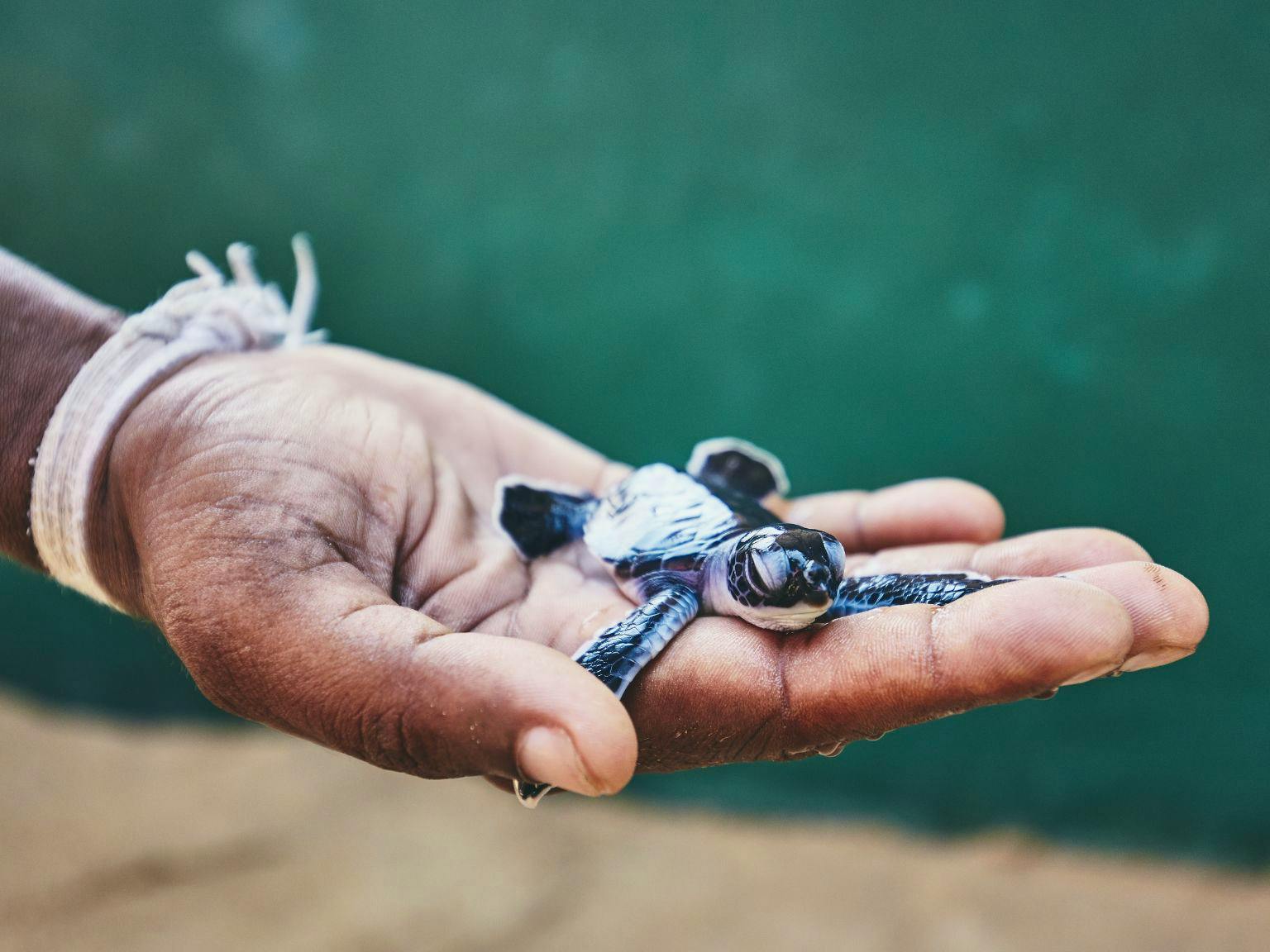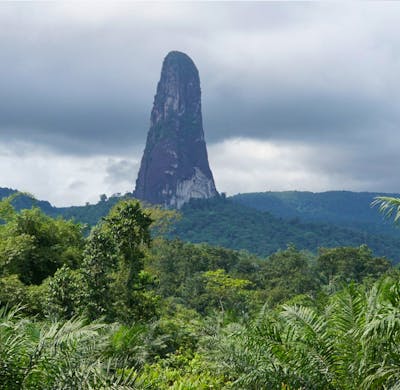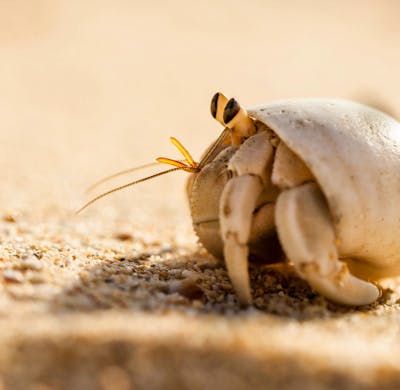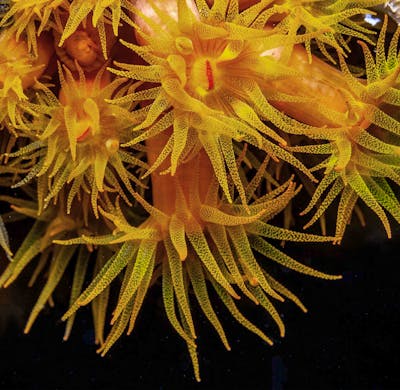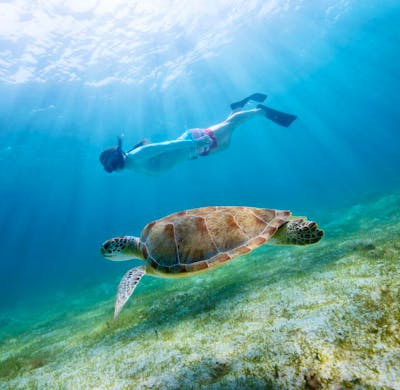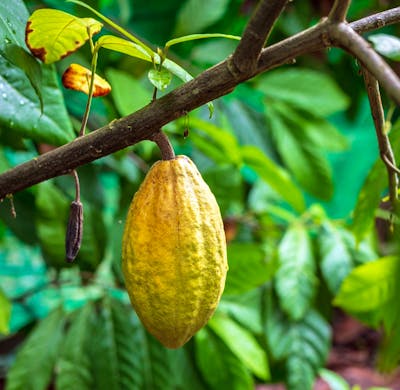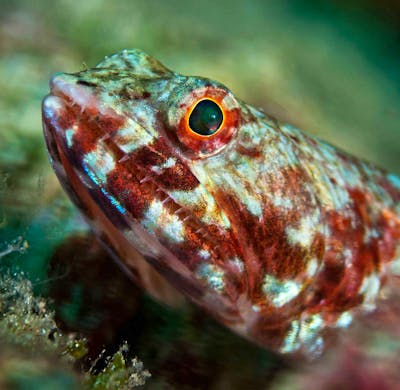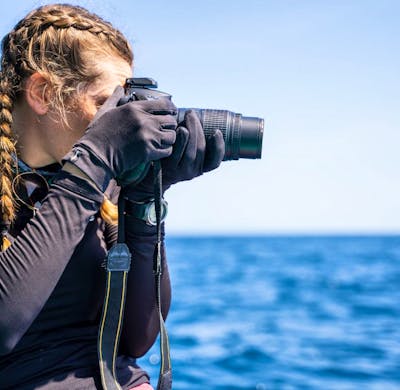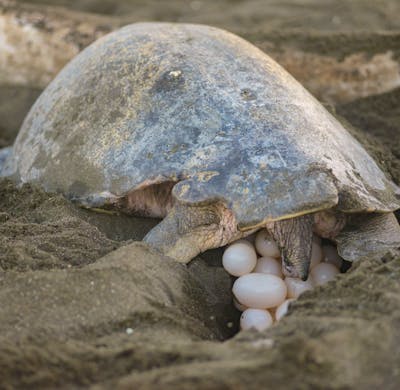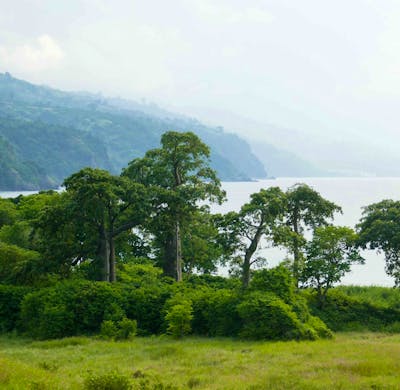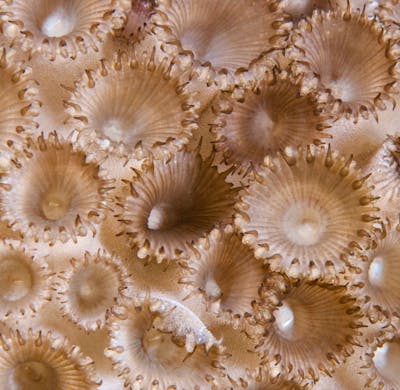About the organization: Africa Tropical Research is dedicated to the exploration and documentation of the diverse plant and animal species inhabiting São Tomé Island. ATR conducts field surveys, collects data on species diversity, researches ecosystems, and actively works towards conserving and safeguarding the island's distinctive biodiversity. Africa Tropical Research is also involved in educational initiatives, collaborating with local communities, playing a role in supporting global endeavors related to biodiversity conservation.
The Marine Research & Conservation Assistant Volunteer Program is crucial for several reasons. Firstly, São Tomé and Príncipe are home to diverse marine species, including endangered sea turtles, dolphins, and numerous fish species. However, overfishing, habitat degradation and climate change pose significant threats to these ecosystems. The volunteer program plays a vital role in promoting marine conservation and sustainable practices to ensure the long-term health of the marine environment.
Several social issues contribute to the challenges facing marine conservation in São Tomé and Príncipe. These include:
- Overfishing: Many local communities rely on fishing as a primary source of livelihood, leading to overfishing and depletion of fish stocks.
- Lack of Awareness: Limited awareness about sustainable fishing practices, marine biodiversity, and the importance of conservation among local communities and stakeholders.
- Economic Dependency: Dependence on marine resources for income and food security creates challenges in implementing conservation measures without addressing alternative livelihood options.
How are we solving these issues?
- Community Engagement: Engaging with local communities is a key component. The program focuses on raising awareness about sustainable fishing practices, the importance of marine conservation, and the role communities can play in preserving their marine resources.
- Education and Training: The program provides education and training to local fishermen, community leaders, and school children. This includes workshops on sustainable fishing techniques, marine biodiversity, and the impacts of overfishing.
- Alternative Livelihoods: To reduce economic dependency on marine resources, the program supports the development of alternative livelihoods such as eco-tourism, community-based fisheries management, and sustainable agriculture.
- Scientific Research: The program conducts scientific research to monitor and assess the health of marine ecosystems. This data informs conservation strategies and helps in the formulation of evidence-based policies.
- Policy Advocacy: Collaborating with local governments and non-governmental organizations, the program advocates for the implementation of policies that promote sustainable fisheries and marine conservation.
In conclusion, the Marine Conservation Volunteer Program in São Tomé and Príncipe is vital for preserving the rich marine biodiversity of these islands. By addressing social issues and promoting sustainable practices, the program aims to create a balance between human needs and the conservation of marine ecosystems.
What is the program about?
The Marine Conservation and Research Volunteer Program in Sao Tome and Principe is designed to actively involve volunteers in various aspects of marine conservation, research, and community engagement. The program typically encompasses a range of activities to address environmental issues and promote sustainable practices in the coastal and marine ecosystems of Sao Tome and Principe.
Key Components of the Program:
- Scientific Research: Volunteers often participate in scientific research initiatives aimed at studying marine biodiversity, ecosystem health, and the impact of human activities on the marine environment.Activities may include underwater surveys, data collection on fish populations, monitoring coral reefs, and assessing the health of seagrass beds.
- Conservation Initiatives: Volunteers actively contribute to conservation efforts by participating in beach clean-ups, coral restoration projects, and habitat restoration activities. In some cases, volunteers may be involved in the identification and removal of invasive species that threaten the local marine ecosystems.
- Community Engagement: Volunteers play a crucial role in community outreach and education. This involves organizing workshops, presentations, and educational programs to raise awareness about marine conservation, sustainable fishing practices, and the importance of preserving biodiversity. Engaging with local communities helps build a connection between conservation efforts and the well-being of the people who depend on marine resources.
- Data Analysis and Reporting: After collecting data during research activities, volunteers may be involved in data analysis and reporting. This includes summarizing findings, creating reports, and contributing to the scientific knowledge base that informs future conservation strategies.
- Policy Advocacy: In collaboration with local organizations, volunteers may engage in advocacy efforts to support the development and implementation of policies that promote sustainable fisheries and marine conservation. This could involve participating in meetings with local authorities or contributing to awareness campaigns.
- Capacity Building: Volunteers may be involved in capacity-building activities, providing training to local communities on sustainable practices, such as responsible fishing techniques and the importance of marine conservation.
- Cultural Exchange: The program often provides opportunities for volunteers to immerse themselves in the local culture, fostering a mutual understanding between the volunteers and the communities they work with.
Overall, the role of the volunteer is multifaceted, involving hands-on fieldwork, scientific research, community engagement, and contributing to the overall mission of preserving marine ecosystems in São Tomé and Príncipe. The program aims to empower volunteers to make a positive impact while gaining valuable experience in marine conservation and research.
With whom will the volunteers be working with?
Volunteers in a Marine Conservation and Research Volunteer Program in São Tomé and Príncipe typically work with a diverse group of stakeholders, including:
- Local Communities: Volunteers often collaborate closely with local communities, engaging in outreach and education initiatives. This involves working with fishermen, community leaders, and residents to raise awareness about sustainable fishing practices, marine conservation, and the importance of preserving the local marine environment.
- Scientists and Researchers: Volunteers have the opportunity to work alongside marine scientists and researchers who lead scientific studies and data collection efforts. This collaboration allows volunteers to contribute to ongoing research projects, learn scientific methodologies, and gain valuable field experience.
- Government Agencies: Some volunteer programs may involve collaboration with local government agencies responsible for environmental conservation and fisheries management. This collaboration may include participating in meetings, workshops, and advocacy efforts to support policy initiatives.
- Other Volunteers: Volunteers typically work as part of a team, collaborating with other volunteers who share a passion for marine conservation. This teamwork fosters a supportive and collaborative environment where individuals can contribute their skills and knowledge to collective efforts.
- Tourism and Hospitality Industry: Volunteers may collaborate with the tourism and hospitality industry to promote sustainable tourism practices. This could involve educating businesses and tourists about responsible behavior to minimize the impact on marine ecosystems.
The collaborative nature of these programs ensures that volunteers receive guidance, support, and mentorship from experienced professionals while actively contributing to the goals of marine conservation and research. Working with a variety of stakeholders also allows volunteers to gain a holistic understanding of the challenges and opportunities involved in preserving marine ecosystems in São Tomé and Príncipe.
Expectations from Volunteers:
- Passion for Conservation: Volunteers are expected to have a genuine passion for marine conservation and a strong interest in preserving marine ecosystems. This enthusiasm is crucial for actively participating in conservation efforts.
- Adaptability and Flexibility: The marine environment can be unpredictable, and conditions may change rapidly. Volunteers should be adaptable and flexible in their approach to work, understanding that adjustments may be necessary based on weather conditions or research requirements.
- Teamwork and Collaboration: Collaboration is a key aspect of marine conservation efforts. Volunteers are expected to work well within a team, communicate effectively, and contribute positively to a collaborative working environment.
- Willingness to Learn: Volunteers are encouraged to have a willingness to learn and engage in various activities, including scientific research, data collection, community engagement, and conservation initiatives. Training and guidance will be provided, but a proactive attitude is essential.
- Respect for Local Cultures: Volunteers should approach their work with respect for the local cultures and communities they engage with. Cultural sensitivity and an openness to understanding different perspectives are important aspects of successful collaboration.
- Physical Fitness and Health: Some activities in marine conservation programs may require physical exertion, such as underwater surveys, beach clean-ups, or boat-based research. Volunteers should be in good physical health and able to participate in fieldwork.
Expectations for Volunteers:
- Training and Guidance: The program should provide comprehensive training and guidance to volunteers, especially in scientific methodologies, data collection techniques, and conservation practices.
- Support and Supervision: Volunteers should expect support and supervision from program organizers and experienced professionals. Regular check-ins and feedback sessions can help ensure that volunteers are progressing effectively in their roles.
- Meaningful Engagement: The program should offer opportunities for volunteers to actively contribute to meaningful conservation and research activities. This may include participating in ongoing projects, community outreach, and initiatives that align with the program's objectives.
- Cultural Integration: Volunteers can expect cultural integration activities, facilitating interactions with local communities and fostering a deeper understanding of the local context.
- Accommodations and Logistics: The program is responsible for providing accommodations, logistical support, and necessary equipment for volunteer activities.
Equipment for Volunteers:
Volunteers are expected to bring the following:
- Snorkeling Equipment: including masks, fins, and wetsuits.
- Appropriate Clothing: comfortable and weather-appropriate clothing for fieldwork, including lightweight and breathable options. Volunteers may also need to bring sturdy footwear suitable for different terrains.
- Personal Items: Personal items such as sunscreen, insect repellent, and a reusable water bottle are often recommended.
FLIGHTS
Embarking on your volunteer journey to São Tomé Island is an exciting step
towards contributing to marine conservation. To ensure a smooth and enjoyable
travel experience, here's a guide on how volunteers can arrive to São Tomé Island.
São Tomé is accessible by air, and volunteers typically arrive at the São Tomé
International Airport (TMS). International flights connect the island to various
locations, with common routes including connections through Lisbon, Portugal, or
other neighboring African countries.
Here are some airlines that have operated
flights to São Tomé and Príncipe:
- TAP Air Portugal: TAP Air Portugal is a major airline that provides flights to São
Tomé International Airport from Lisbon.
- STP Airways: This is the national airline of São Tomé and Príncipe, providing
domestic and international flights. It often operates flights to Lisbon and other
African destinations.
- Ceiba Intercontinental: This airline, based in Equatorial Guinea, operates
flights connecting Malabo (Equatorial Guinea) and São Tomé.
- TAAG Angola Airlines: TAAG Angola Airlines offers flights connecting São Tomé
to Luanda, Angola.
When planning your journey, explore flight options that align with your travel
preferences and schedules. Consider booking flights well in advance to secure
the best fares
VISA
Understanding the visa requirements is crucial for a hassle-free entry into São
Tomé. Here are general guidelines, but it's essential to check with the São Toméan
embassy or consulate for the most up-to-date information:
São Tomé and Príncipe typically offer several visa types, including Tourist Visas
and Volunteer Visas. Volunteers should apply for the appropriate visa based on
the purpose and duration of their stay.
- Tourist Visa: For short-term volunteer programs, a Tourist Visa is often suitable.
This visa is usually valid for 15 to 30 days and can be extended if necessary.
- Volunteer Visa: For longer volunteer commitments, volunteers may opt for a
specific Volunteer Visa. This visa type is designed for individuals contributing to
projects or initiatives on the island.
Volunteers should initiate the visa application process well in advance of their
planned travel date. This may involve submitting required documents, passport
details, and proof of the purpose of the visit.
Commonly required documents include a valid passport, completed visa
application form, proof of accommodation, return flight ticket, and a letter from
the organization hosting the volunteer.
We encourage future volunteers to visit the São Toméan embassy or consulate in
their home country to submit their visa application. Be prepared to pay any
applicable visa fees.
It's essential to note that visa requirements and processes may change, so always
check with the relevant authorities for the latest information.
Navigating the journey to São Tomé is an essential part of your volunteer
experience. By planning ahead and staying informed about visa requirements,
volunteers can ensure a seamless arrival and focus on making a positive impact
on marine conservation in this stunning island paradise. Safe travels!
CURRENCY AND MONEY
The currency of São Tomé and Príncipe is the São Tomé and Príncipe Dobra (STD).
The dobra is abbreviated as "Db" or "Db STN," and it is the official currency used in
daily transactions on the islands.
Here are some key points about the currency and money in São Tomé and
Príncipe:
- Currency Code: The official currency code for the São Tomé and Príncipe Dobra is
STD.
- Exchange Rate: The exchange rate of the dobra can fluctuate, so it's advisable to
check the current rates before traveling.
- Credit Cards: While credit cards may be accepted in some larger establishments,
it's essential to carry some cash, especially when traveling to more remote areas
where card payments may not be as widely accepted.
- ATMs: ATMs are available in urban areas, and they may accept major international
debit and credit cards. However, it's advisable to carry some cash for places
where ATMs may not be readily accessible.
- Foreign Currency: Some establishments may accept euros or US dollars, but it's
recommended to use the local currency for transactions to avoid unfavorable
exchange rates.
Please note that economic conditions and currency-related information can
change, so it's recommended to check for any updates or changes in currency
details closer to your travel date or consult with local authorities for the most
current information.
COMMUNICATIONS
International mobile/cell phone roaming is available throughout most of São
Tomé Island. Reception isn’t the best at the Field Station, but generally, there’s
reasonable signal strength.
Volunteers should check with their service provider before arriving in São Tomé
whether their service allows international roaming. Local SIM cards can be
purchased very cheaply (We suggest using CST, as you get the best signal locally
with that) but it is essential that your phone is unlocked or ‘Open Line’.
The postal service within the São Tomé and Príncipe is neither swift nor reliable
and always takes two or more weeks to arrive. We do not recommend having
anything important sent to you while you volunteer. Be aware, that if you send
expensive things like perfumes, phones, cameras etc. they will get impounded by
customs, and you will have to pay import tax.
VACCINATIONS AND TRAVEL MEDICINE
To ensure a safe and healthy trip, consider the following vaccinations and travel
medicine tips:
- Routine Vaccinations: Ensure that your routine vaccinations are up-to-date,
including measles, mumps, rubella, diphtheria, tetanus, and pertussis.
- Yellow Fever Vaccination: A yellow fever vaccination is required for entry into São
Tomé and Príncipe only when you're traveling from a yellow fever area
vaccination. If that is the case, make sure you receive the vaccine and carry your
International Certificate of Vaccination or Prophylaxis (ICVP) with you.
- Hepatitis A and B Vaccinations: Consider getting vaccinated against hepatitis A
and B, as these viruses can be transmitted through contaminated food, water, or
bodily fluids.
- Typhoid Vaccination: Typhoid is a risk in São Tomé and Príncipe, so consider
getting vaccinated, especially if you plan to eat or drink in local establishments.
- Malaria Prophylaxis: Malaria is present in São Tomé and Príncipe, and it's
important to take prophylactic medication. Consult with your healthcare provider
to determine the most suitable option for you.
- Cholera Vaccination: While not mandatory, discussing the cholera vaccine with
your healthcare provider is advisable.
- Rabies Pre-Exposure Prophylaxis: Volunteers are recommended to be vaccinated
for rabies.
- Traveler's Diarrhea Prevention: Practice safe food and water hygiene to reduce
the risk of traveler's diarrhea. Avoid consuming tap water, eat well-cooked and
hot foods, and peel fruits and vegetables.
- Personal Medications: Carry an adequate supply of any prescription medications
you may need during your stay. Also, pack a basic medical kit with items such as
pain relievers, antidiarrheal medication, and a first aid kit.
- Insect Protection: Use insect repellent with at least 20% DEET, wear long sleeves,
and consider using a bed net impregnated with insecticide to prevent mosquitoborne diseases.
- Sun Protection: Given the tropical climate, use sunscreen, wear a hat, and stay
hydrated to protect yourself from the sun.
- Consult with a Travel Medicine Specialist: Before departure, consult with a travel
medicine specialist or your healthcare provider to discuss your specific travel
plans and health needs.
Always check for the latest health advisories and travel recommendations from
reliable sources, such as the World Health Organization (WHO) and the Centers
for Disease Control and Prevention (CDC). Keep in mind that health requirements
may change, so staying informed is crucial for a safe and enjoyable experience.
INSURANCE
When traveling to São Tomé and Príncipe as a volunteer for a marine conservation
program, it's essential to have comprehensive travel and health insurance
coverage. Here are some tips to consider:
- Medical Coverage: Ensure that your travel insurance provides adequate coverage
for medical expenses, including hospitalization, doctor visits, medications, and
emergency medical evacuation. Check if the policy covers pre-existing conditions
or requires a medical examination.
- Evacuation and Repatriation: Confirm that your insurance includes coverage for
emergency evacuation and repatriation. This is crucial in case you need to be
transported to a medical facility or returned to your home country for advanced
medical care.
- Coverage for Adventure Activities: the marine conservation program involves
adventurous and water-related activities, such as snorkeling and boat trips, make
sure your insurance covers these activities. Some standard policies may exclude
certain high-risk activities.
- Trip Cancellation and Interruption: Look for a policy that provides coverage for
trip cancellation or interruption. This can be beneficial if unforeseen
circumstances force you to cancel or cut short your trip.
- Lost or Stolen Belongings: Check if your insurance covers the loss or theft of
personal belongings, including valuables, equipment, and travel documents.
- 24/7 Assistance Services: Opt for a policy that offers 24/7 emergency assistance
services. This can be valuable in case you need guidance, support, or emergency
medical advice while in São Tomé and Príncipe.
- Review Policy Exclusions: Carefully read and understand the policy exclusions.
Some insurance policies may have specific exclusions related to certain
destinations, activities, or pre-existing health conditions.
- Duration of Coverage: Ensure that your insurance coverage matches the entire
duration of your stay in São Tomé and Príncipe.
- COVID-19 Coverage: Given the ongoing global situation, check whether your
insurance covers COVID-19-related expenses, including testing, treatment, and
quarantine requirements.
- Documentation: Keep a copy of your insurance policy, emergency contact
numbers, and any required claim forms with you. Also, share this information with
someone you trust back home.
- Contact Information: Save the contact information for your insurance provider
and emergency assistance services in your phone and have a printed copy as well.
- Check Government Recommendations: Refer to your government's travel
advisory for São Tomé and Príncipe and ensure that your insurance coverage
aligns with any specific recommendations or requirements.
Remember to thoroughly review the terms and conditions of the insurance policy
before purchasing it, and if you have any questions, don't hesitate to contact the
insurance provider for clarification. Having the right insurance coverage is a
crucial aspect of ensuring a safe and worry-free volunteering experience.
CULTURAL CONSIDERATIONS
When traveling to São Tomé and Príncipe, it's important to be mindful of cultural
considerations to ensure respectful and positive interactions with the local
community. Here are some cultural considerations:
- Respect for Elders: Show respect to elders by using appropriate titles when
addressing them. In São Toméan culture, elders are highly regarded, and showing
deference is a sign of courtesy.
- Greetings: Greetings are an essential aspect of São Toméan culture. Take the
time to exchange pleasantries, and a friendly "Bom dia" (good morning), "Boa
tarde" (good afternoon), or "Boa noite" (good evening) can go a long way in
establishing positive connections.
- Physical Contact: São Toméans are generally warm and friendly, but it's
important to be mindful of personal space. Physical contact, such as hugging or
touching, may vary among individuals, so it's best to gauge the situation and
follow local cues.
- Dress Modestly: São Tomé and Príncipe is a predominantly Catholic country, and
conservative dressing is appreciated. When visiting local communities or religious
sites, it's advisable to dress modestly, covering shoulders and knees.
- Photography Etiquette: Always seek permission before taking photographs,
especially of people. Some individuals may prefer not to be photographed, and
respecting their wishes is important.
- Language: Portuguese is the official language, and while many São Toméans
speak Portuguese, a significant portion of the population communicates in Forro,
the local Creole. Learning a few basic phrases in both languages can enhance
your experience and show respect for the local culture.
- Community Engagement: If you're participating in community activities or events,
be open, listen actively, and be sensitive to local customs and traditions.
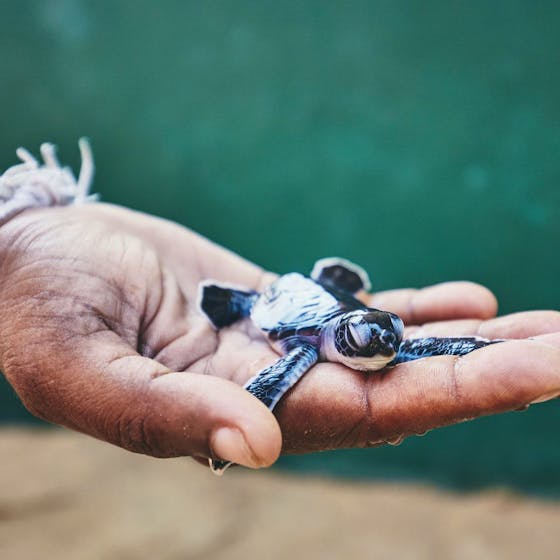
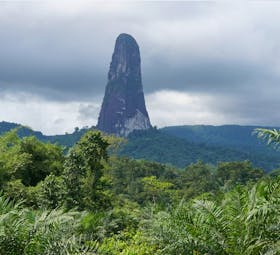
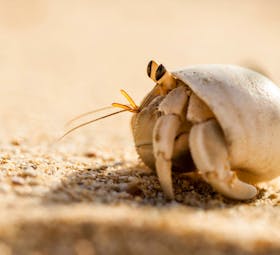
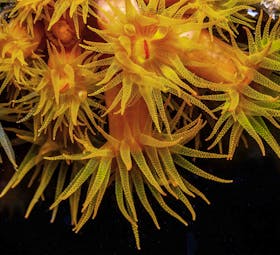
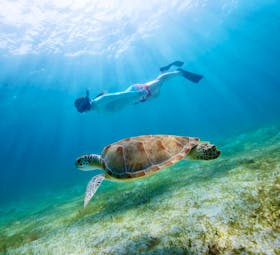

 5
5

